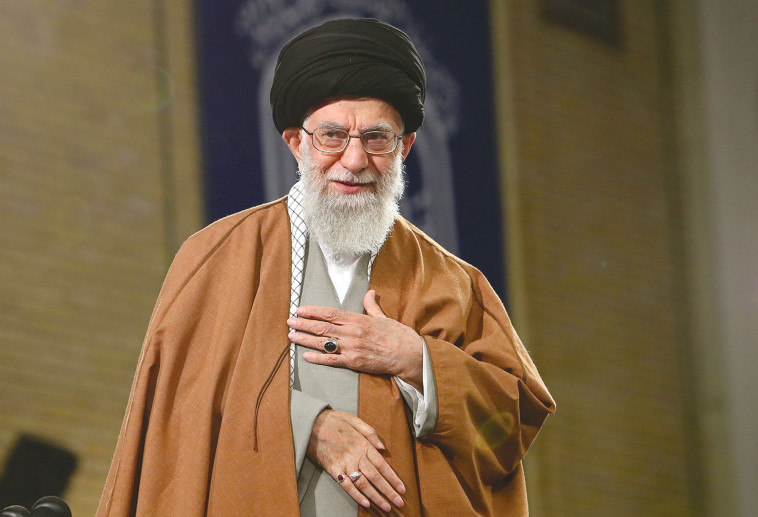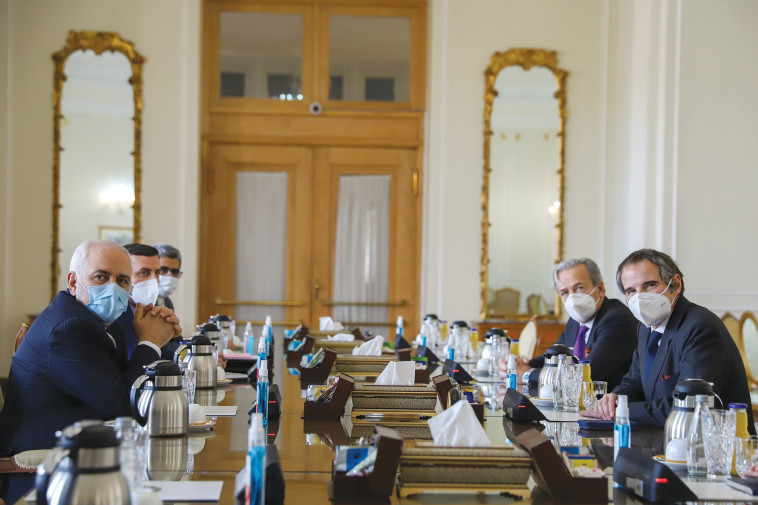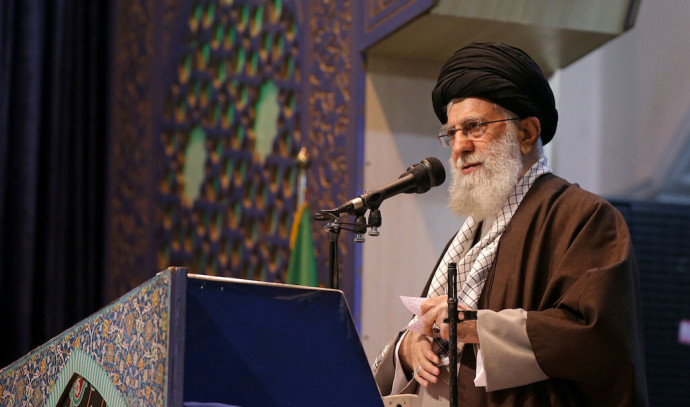The ultimatum issued by Iran to the United States, in order for it to remove the sanctions imposed against it, ended tonight (Monday to Tuesday). Now, the Iranians have announced that they will not allow the International Atomic Energy Agency to come and monitor their operations.
“Starting at midnight, we will have no more commitments to the agency,” the Iranian envoy to the Atomic Energy Agency said. In addition, Iranian leader Ali Khamenei said earlier today that Iran intends to enrich uranium to 60%, should it have to do so. “We will not succumb to American pressure regarding our nuclear program,” Khamenei said.
 Ali Khamenei (Photo: AFP)
Ali Khamenei (Photo: AFP)The director general of the International Atomic Energy Agency (IAEA) Rafael Grossi announced on his return to Vienna from Tehran on Tuesday that he had reached an “interim technical agreement” with the Iranian authorities. According to him, this is an agreement that will allow the Agency to continue its monitoring activities at their nuclear sites for three months, to a lesser extent than in the nuclear agreement, but nevertheless in a “satisfactory” manner in terms of the agency’s tasks. “We will have less access,” Grossi admitted. “But a full return to the agreement will have to be decided in political negotiations.”
Iranian Foreign Minister Mohammad Javad Zarif claimed for his part that the legislation prevented them from handing over surveillance camera footage to the sites. But he said this should not hurt relations with it and prevent it from fulfilling its role of reporting on the “peace-loving nature of Iran’s nuclear program.” His deputy, Abbas Arakji, who is in charge of the nuclear talks, estimated that the IAEA’s oversight operations would be reduced by 20% -30%, but claimed that “this does not affect the agreement.”
Last night, Iran’s Supreme Leader Ayatollah Ali Khamenei referred to negotiations with the superpowers, saying: “Tehran will not succumb to pressure and enrich uranium to a level of up to 60%. We will not abandon our position on nuclear weapons. No one can stop Tehran from acquiring nuclear weapons. “But the Islamic Republic is not trying to obtain nuclear weapons.”
Meanwhile, EU foreign ministers met in Brussels yesterday to discuss, among other issues, the “possibility that has arisen,” as European Foreign Minister Joseph Burrell defines the United States’ return to the nuclear deal from which the Trump administration withdrew. .
 Muhammad Zarif and Rafael Grossi in Tehran (Photo: Reuters)
Muhammad Zarif and Rafael Grossi in Tehran (Photo: Reuters)During the conference, participants held a conference call with U.S. Secretary of State Anthony Blinken. Recall, Blinken recently said at the UN Conference on Nuclear Weapons that his country is interested in “extending and strengthening” the agreement with Iran regarding the nuclear program. He also stressed that the US military is prepared to deal with the development of Iranian missiles, which is causing instability in the region.
EU Foreign Minister Joseph Burrell said today (Monday) in Brussels, at the end of the EU Foreign Ministers’ session, which was also attended from a distance by US Foreign Minister Anthony Blinken, that intensive contacts are now underway with the US to enable Its return to the nuclear deal with Iran. Burrell said by virtue of his position he coordinates these contacts, and that he is optimistic and hopes he can bring good news within a few weeks. “The parties are showing goodwill, for the Americans this is a very important decision,” Burrell said, adding that European countries were concerned about Iran’s intention not to implement the protocol in the agreement on the work of International Atomic Energy Agency inspectors in Iran, and that he was satisfied with the agency’s talks. Rafael Grossi, who will allow the agency to carry out the necessary level of supervision. “It gives us a window of opportunity to strengthen the agreement,” Burrell added.
Apart from Burrell, French Foreign Minister Jean-Yves Le Drian, who attended the EU foreign ministers’ meeting, also said that “the situation in Iran worries us greatly.” At the same time, White House Communications Secretary Jen Pesky said that Europe and the United States are still awaiting Iran’s response to the EU proposal to host an informal meeting between the countries that signed the 2015 nuclear deal and the United States.
